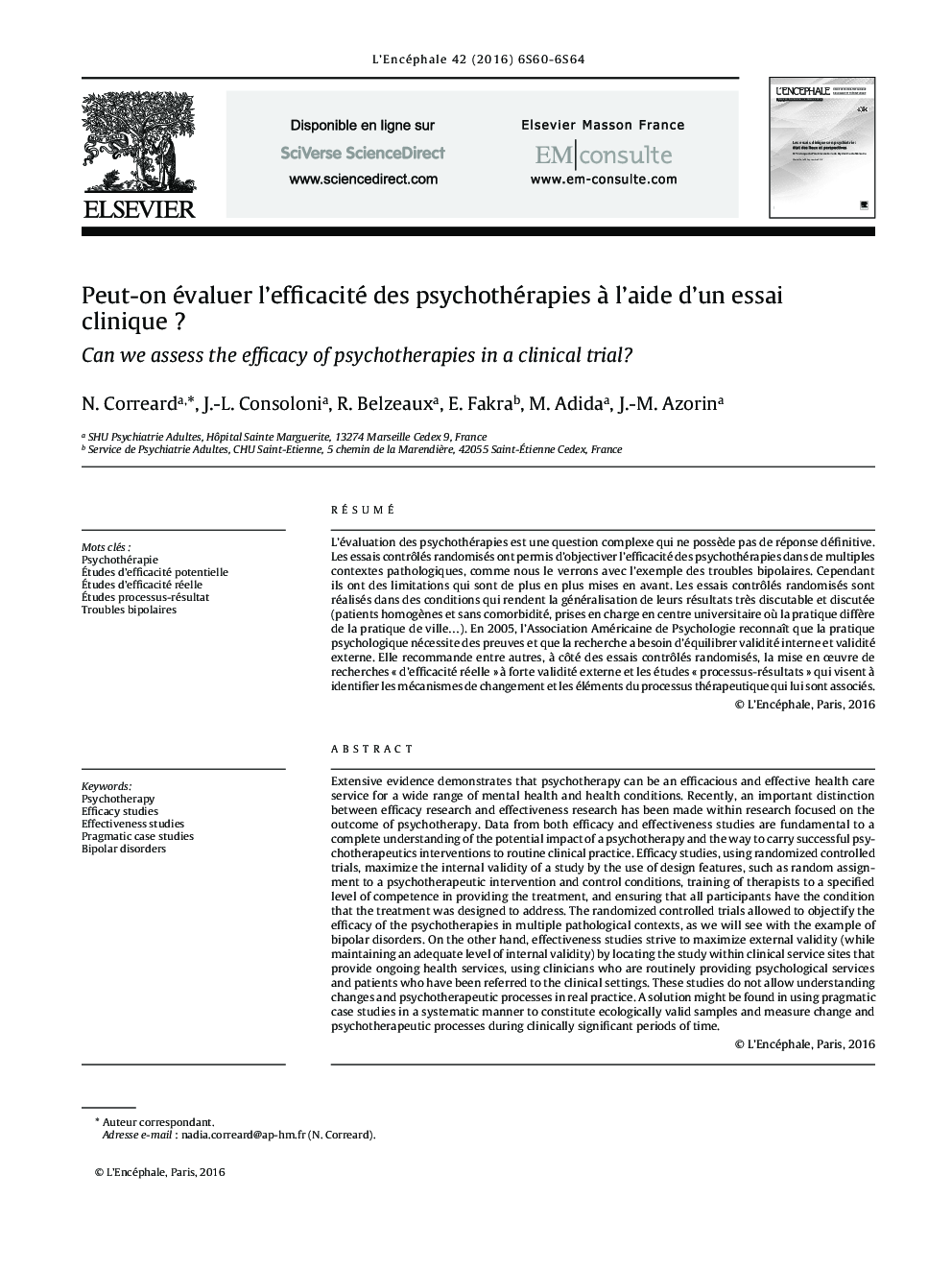| Article ID | Journal | Published Year | Pages | File Type |
|---|---|---|---|---|
| 5721333 | L'Encéphale | 2016 | 5 Pages |
Abstract
Extensive evidence demonstrates that psychotherapy can be an efficacious and effective health care service for a wide range of mental health and health conditions. Recently, an important distinction between efficacy research and effectiveness research has been made within research focused on the outcome of psychotherapy. Data from both efficacy and effectiveness studies are fundamental to a complete understanding of the potential impact of a psychotherapy and the way to carry successful psychotherapeutics interventions to routine clinical practice. Efficacy studies, using randomized controlled trials, maximize the internal validity of a study by the use of design features, such as random assignment to a psychotherapeutic intervention and control conditions, training of therapists to a specified level of competence in providing the treatment, and ensuring that all participants have the condition that the treatment was designed to address. The randomized controlled trials allowed to objectify the efficacy of the psychotherapies in multiple pathological contexts, as we will see with the example of bipolar disorders. On the other hand, effectiveness studies strive to maximize external validity (while maintaining an adequate level of internal validity) by locating the study within clinical service sites that provide ongoing health services, using clinicians who are routinely providing psychological services and patients who have been referred to the clinical settings. These studies do not allow understanding changes and psychotherapeutic processes in real practice. A solution might be found in using pragmatic case studies in a systematic manner to constitute ecologically valid samples and measure change and psychotherapeutic processes during clinically significant periods of time.
Related Topics
Health Sciences
Medicine and Dentistry
Psychiatry and Mental Health
Authors
N. Correard, J.-L. Consoloni, R. Belzeaux, E. Fakra, M. Adida, J.-M. Azorin,
